
ALSO BY JEFFREY MARX
It Gets Dark Sometimes
One More Victory Lap (with Carl Lewis)
Inside Track (with Carl Lewis)
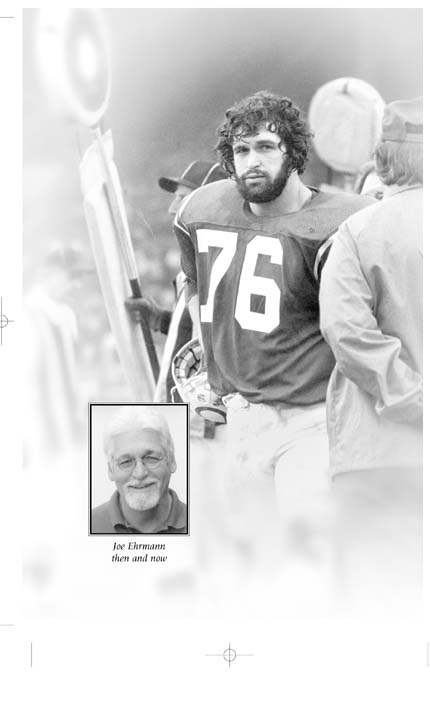

SIMON & SCHUSTER
Rockefeller Center
1230 Avenue of the Americas
New York, NY 10020
Copyright 2003 by Jeffrey Marx All rights reserved, including the right of reproduction in whole or in part in any form.
S IMON & S CHUSTER and colophon are registered trademarks of Simon & Schuster, Inc.
That Guy in the Glass appears in this book exactly as it was found on a sign outside the Colts locker room. A slightly different (and apparently the original) version of the poem, entitled The Guy in the Glass, has been credited to Peter Dale Wimbrow Sr. and can be found at www.theguyintheglass.com.
Library of Congress Cataloging-in-Publication Data
Marx, Jeffrey, 1962
Season of life : a football star, a boy, a journey to manhood / Jeffrey Marx.
p. cm.
1. Ehrmann, Joe. 2. Marx, Jeffrey, 1962- 3. Football coachesMaryland BaltimoreBiography. 4. Gilman School (Baltimore, Md.)Football.
I. Title
GV939.E45M37 2004
796.332 092dc22
092dc22
[B] 2004052493
ISBN-13: 978-1-4165-8481-0
ISBN-10: 1-4165-8481-1
Visit us on the World Wide Web:
http://www.SimonSays.com
For Richard Marx, without whom I have no story at all
This book is also dedicated to the memory of Wendy Marx,
my only sister and best friend, my silent hero,
forever my inspiration
Acknowledgments
This book could be written only because an old friend, Joe Ehrmann, welcomed me back into his life. I thank Joe and his wife, Paula, for giving me three wonderful giftstheir time, their kindness, and their trust. Biff and Amy Poggi graciously shared the same trio of offerings with me. I am enormously grateful for the way they opened their doors and their hearts to someone they were just getting to know.
I also want to thank the many good people at Gilman School who always made me feel like I belonged. That includes all the boys on the 2001 football team and their families. It also includes the following coaches and other members of the Gilman community: Buzz Battaglia, Lori Bristow, Sherm Bristow, Frank Culotta, Johnnie Foreman, Timothy Holley, Keith Kormanik, Josh Mason, Jon McGill, Ray Mills, David Payne, Nick Pitruzzella, Brendan Schenning, Carol Schuch, Faye and Elias Shaya, Edward Trusty, Rob White, and Stan White.
Working on a bookat least for this struggling writerrequires much support from an army of friends and family. I never would have made it through this process without the love and understanding of Leslie Herpin (Po to me). Thank you, Po, for being here whenever I needed you most. I also thank the following for always allowing me to go on and on with my endless stream of book talk: Virginia Anderson, Dale Brown, John and Lee Carroll, Tom Connolly, Frank Deford, Joe Douglas, E. David Ellington and Wendy Marx Ellington, Dan Forstein and Peggy Marx, Rusty Gorman, Lauren Hochman, Bert Jones, Greg Katz, Carl Lewis, Toni and Renate Linhart, Mitch Loveman, Jim and Patti Marx, Richard and Leslie Marx, Harry Merritt, Peter Ripka, Dane and Daniella Strother, Bret Talbot, Merv Wampold, Mike Woodrow, and Michael and Becky York.
Finally, I want to offer my deep thanks to the people who have contributed most directlywith advice, edits, design, and kindnessto the preparation of this book: Bob Bender, Flip Brophy, Carl Cannon, Tina Croley, Emily Loose, Trina Lucido, Michael O Shea, and Ray Walker. An extra-large bundle of thanks goes to my editor, Carl Cannon, who has now managed to red-ink his way through all four of my books. Thank you, as always, Carl, for saving me from myself whenever I was wise enough to let you.
Chapter One
YOUNG FACES USUALLY FILLED WITH WARMTH AND wonder were now taut with anticipation and purpose. Eyes were lasers. Hearts were pounding. It was nothing unusual for the explosive combination of testosterone and youth to unleash a wild display of emotions in the minutes leading up to the start of a high school football gameand this was no ordinary game for the boys of Gilman School. This was the season opener, being played in front of three thousand screaming fans, and it featured the type of marquee matchup typically saved for a championship contest at the end of a year. Gilman was the top-ranked high school team in all of Maryland. Its opponent was second-ranked DeMatha.
The Gilman boys were decked out in crisp white jerseys and plain gray helmets turned shiny silver by the stadium lights. They were not only schoolboys now. They were also the mighty Greyhounds. The Greyhounds paced. They gnashed teeth. They pounded one another on the shoulder pads.
Pancakes, one of the senior captains growled, meaning he wanted to see opponents knocked flat on the ground. Im looking for pancakes.
A sophomore linebacker, normally a very polite and respectful fifteen-year-old, spoke from behind an overdone smearing of eye black that transformed his face into something of a Halloween mask: They dont want to ask us any questions, cause I promise you, were gonna give em some answers.
Time to get busy! another boy shouted toward the Friday night sky.
Joe Ehrmann had already seen and heard it all too many times for any of this to affect him a whole lot. Hed seen and heard it as an All-American defensive linemanbig mountain of a man, six-foot-four, 260 well-packed poundsat Syracuse University. Hed seen and heard it throughout his thirteen years as a professional football player, most of them as a star with the Baltimore Colts, one of the most storied franchises in the history of the National Football League. Hed seen and heard it during five years of coaching at Gilman. At the age of fifty-two, Joe was no longer fazed by the specific circumstances of any single game. No victory or defeat, no matter how glorious or excruciating for his team, would ever eclipse the only reason he was there. What do points on a scoreboard have to do with teaching boys how to be men of substance and impact? Nothing. And that explained the absolute calmness with which Joe now walked toward his huddled team for final comments just before the start of the 2001 season. Actually, Joe did not walk so much as he shuffled, gingerly calculating his steps, which sometimes moved him side to side almost as much as they advanced him. Joe was prematurely hobbled by the residue of countless full-body crashes on football fields across America, his right side held together by an artificial hip, his left side permanently hampered by long-ago surgery that left him with almost no flexibility in either his ankle or his foot.
Joes brown eyes peered through gold-rimmed glasses that conspired with his white hairwith his closely trimmed white beard and mustache as wellto make him look more like a college professor than a jock. He reached into a pocket of his khaki pants for his ever-present tin of peppermint Altoids. That was the only thing Joe carried onto the field. He did not need a clipboard because he coached from the heart. He did not need a whistle because his players automatically fell silent when he stood before them.
This is one of the greatest experiences of your young lives, Joe told the boys. So lets make sure youre having fun, all right? Youve been doing a lot of work the last few weeks to get ready for this. Nows the time you can let it all hang out. Lets get after them. Were gonna get after em. But lets make sure were having fun.

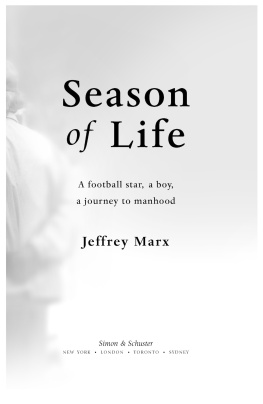
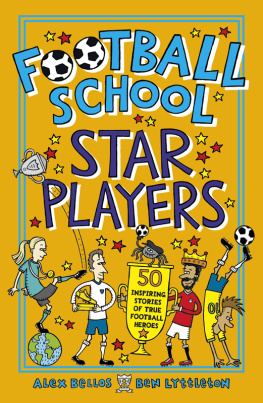

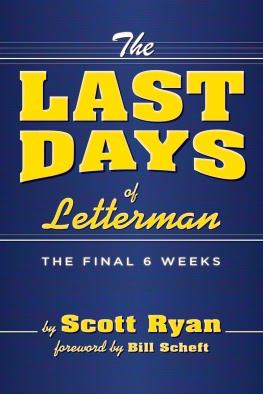
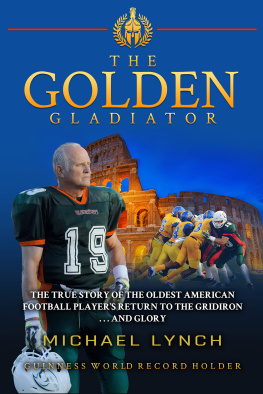
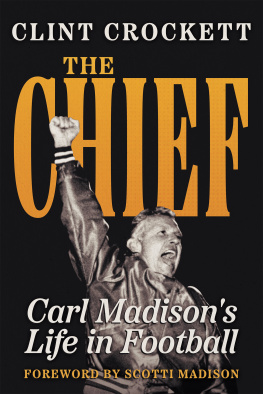
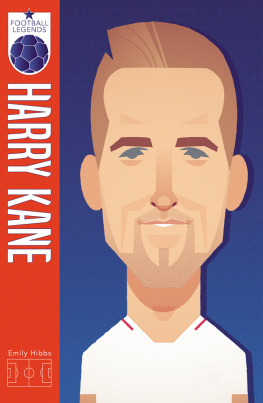

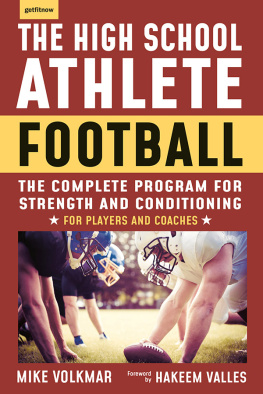
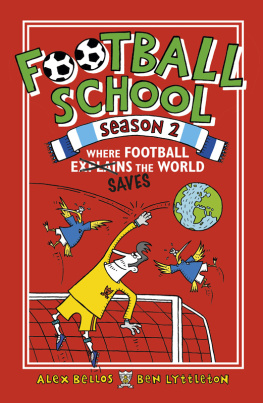



 092dc22
092dc22